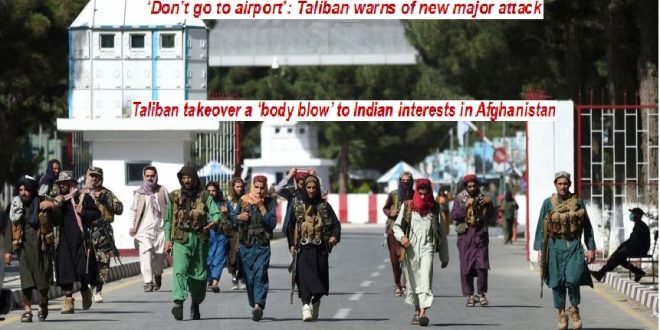Anti-Taliban march in London
29-08-2021
By SJA Jafri + Bureau Report + Agencies
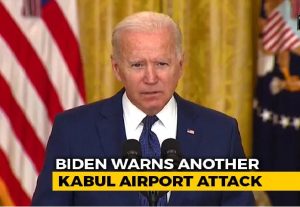 LONDON/ KABUL/ WASHINGTON/ TEHRAN/ BAGHDAD/ DOHA/ ISLAMABAD: US President Joe Biden warned that conditions in Kabul during the final days of the US evacuation remain “extremely dangerous” and said his military commanders had informed him during a briefing on Saturday (Aug 28) morning that an another attack was “highly likely in the next 24-36 hours”.
LONDON/ KABUL/ WASHINGTON/ TEHRAN/ BAGHDAD/ DOHA/ ISLAMABAD: US President Joe Biden warned that conditions in Kabul during the final days of the US evacuation remain “extremely dangerous” and said his military commanders had informed him during a briefing on Saturday (Aug 28) morning that an another attack was “highly likely in the next 24-36 hours”.
“I directed them to take every possible measure to prioritize force protection, and ensured that they have all the authorities, resources and plans to protect our men and women on the ground”, Biden said.
Americans were also told to leave the vicinity of Kabul airport immediately following a “specific, credible threat”, the US embassy in Afghanistan said in a statement, telling citizens to avoid travelling to the airport and avoid all gates.
Thirteen US military personnel were killed and 18 other American service members were wounded in a suicide bombing on Thursday outside the gates of the Kabul airport, where the US has been running its evacuation operation. On Friday, the US launched a retaliatory strike that killed two members of ISIS-K the Islamic State offshoot that has claimed responsibility for the attack.
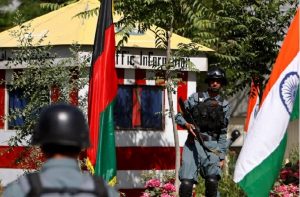 Biden said the operation was led by US Central Command leader Kenneth McKenzie and that it “was not the last” against the group responsible for the airport bombing.
Biden said the operation was led by US Central Command leader Kenneth McKenzie and that it “was not the last” against the group responsible for the airport bombing.
“We will continue to hunt down any person involved in that heinous attack and make them pay,” Biden said.
Despite the threat of another terror attack, Biden said his military commanders had assured him they had plans to protect Americans on the ground and could complete the evacuation and drawdown missions.
As of Saturday, the US had facilitated the evacuation of about 113,500 people since the Taliban swept to control of Afghanistan on Aug 14. Earlier, an additional 350 US citizens have told the State Department they are still seeking to leave the country.
The US strike against members of ISIS-K injured a third member of the group; though Defence Department spokesman John Kirby said the strike didn’t “get us in the clear” and described the threat from the group as “still active”.
While Kirby said ISIS-K “lost some capability to plan and conduct missions”, a US official said 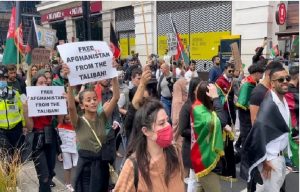 on Friday night that the primary target of the attack didn’t have a direct link to Thursday’s assault in Kabul.
on Friday night that the primary target of the attack didn’t have a direct link to Thursday’s assault in Kabul.
The official, who was granted anonymity to discuss the operation, said the target was killed by a Reaper drone while travelling in a vehicle. Kirby declined to name the people targeted or elaborate on their roles.
The latest strike marks at least the third time the Reaper, built by privately-held General Atomics, and has been used in a high-profile attack.
A Reaper firing laser-guided Hellfire missiles was used in a night-time November 2015 attack in Syria that killed Islamic State terrorist Mohammed Emwazi, known as Jihadist John.
More recently, a Reaper fired two Hellfires during a night attack outside Baghdad International Airport in January 2020 that killed Iranian general Qassem Soleimani just after he arrived in Iraq.
Meanwhile, the Taliban’s return to power two weeks ago has caused a major diplomatic setback for India, with the South Asian giant now one of the region’s “most disadvantaged” players, analysts say.
 Within weeks, the Taliban took over the country in a stunning military sweep, as US-led foreign forces were on their way out after 20 years ending the country’s longest overseas war.
Within weeks, the Taliban took over the country in a stunning military sweep, as US-led foreign forces were on their way out after 20 years ending the country’s longest overseas war.
President Ashraf Ghani, with whom New Delhi had cultivated a close relationship, fled the country as the Taliban surrounded the capital, Kabul.
The sudden collapse of the Western-backed government in Kabul on August 15 precipitated an unprecedented exodus of diplomats, foreign aid workers and Afghans who worked for Western countries and feared reprisals from the Taliban.
India was among the nations that closed their missions in Afghanistan and brought back their staff and citizens. It is still trying to evacuate some citizens left behind amid chaotic conditions at the Kabul airport.
India, under Operation Devi Shakti, has already evacuated more than 800 people from Afghanistan after Kabul was captured by the Taliban.
On Thursday, it could evacuate only 24 of its citizens along with 11 Nepalese nationals in a military aircraft, not the more than 180 it had planned, as others could not reach the airport to board the aircraft.
 India’s investment in Afghanistan
India’s investment in Afghanistan
New Delhi invested $3bn in development projects, offered scholarships to Afghan students, and helped construct the parliament building at a cost of $90m, earning huge goodwill in the country of 38 million.
Last year, during the 2020 Afghanistan Conference, India’s External Affairs Minister Subrahmanyam Jaishankar said no part of Afghanistan was “untouched” by the “400-plus projects” that India had undertaken in all 34 provinces of the country.
Bilateral trade between the two countries had also increased significantly over the years and reached $1.5bn in 2019-2020.
India, which sees the Taliban as a proxy of its archrival Pakistan, had maintained close ties with the Northern Alliance, which defeated the Afghan armed group in 2001 with the help of the US-led NATO forces.
“India has gone from being Kabul’s closest regional partner to one of the region’s most disadvantaged players in an Afghanistan context,” said Michael Kugelman, deputy director of the Asia program at the US-based Wilson Center.
 Echoing similar sentiments, Happymon Jacob from New Delhi’s Jawaharlal Nehru University, said: “I think India seems to be out of the game in Afghanistan.”
Echoing similar sentiments, Happymon Jacob from New Delhi’s Jawaharlal Nehru University, said: “I think India seems to be out of the game in Afghanistan.”
He told Al Jazeera in the last 20 years India played a positive role in Afghanistan, but at present India’s diplomacy was almost “non-existent” in the country and its stakes have “dramatically decreased”.
‘Too late in reaching out to the Taliban’
Some foreign policy mandarins have pointed out India was too late in reaching out to the Taliban to secure its interests, as reports emerged that Indian officials met the Taliban in the Qatari capital, Doha, in June. The Taliban established a political office in Doha in 2013.
Kugelman said two factors went against New Delhi: “India’s reluctance to reach out to the Taliban until it was too late, and an ill-fated Afghan reconciliation process with a deep Pakistani footprint, owing to its ties to the Taliban.”
The Afghan reconciliation process was an outcome of the agreement between the Taliban and the US signed in February 2020.
 “One deprived India of potential leverage, and the other put New Delhi at a geopolitical disadvantage,” Kugelman told Al Jazeera.
“One deprived India of potential leverage, and the other put New Delhi at a geopolitical disadvantage,” Kugelman told Al Jazeera.
India has been wary of the Taliban, given its proximity to Pakistan’s military spy agency the Inter-Services Intelligence (ISI), while Islamabad has accused New Delhi of using Afghan soil to “carrying out terror activities”.
“The Taliban takeover delivers a body blow to India’s strategic interests,” said Kugelman.
“Afghanistan will now have a pro-Pakistan government, and this will give Pakistan and India’s other key rival, China – Pakistan’s close friend – an opportunity to play more of a role in Afghanistan.
“There will also be security risks, because the Taliban takeover will galvanise regional militants, including anti-India terror groups.”
‘Wait and watch’
During its first stint in power, from 1996-2001, the Taliban faced international isolation as it was recognized by only three countries – Pakistan, Saudi Arabia and the United Arab Emirates but things seem to be different this time as regional powers such as China, Russia, and Iran  have indicated they may work with the Taliban to secure their interests.
have indicated they may work with the Taliban to secure their interests.
India’s former External Affairs Minister Kunwar Natwar Singh, last week in an interview suggested New Delhi should establish diplomatic ties with the Taliban if it functions as a “responsible government,” but India’s former ambassador to Afghanistan, Gautam Mukhopadhaya, said the situation is still evolving and nothing has crystallized yet.
“We don’t even have a transitional administration yet (in Afghanistan),” he told Al Jazeera, adding the Western-backed Islamic Republic of Afghanistan is still the recognized government of the country at the United Nations.
“I think for the time being we have to wait and watch.”
Kugelman, however, said India’s only option in Afghanistan is to try to reach out to the Taliban again, as “unpalatable a choice as that may be”.
“At a minimum, establishing informal links with the Taliban government would put New Delhi in a stronger position to ensure that its assets and investments in Afghanistan aren’t imperiled,” he said.
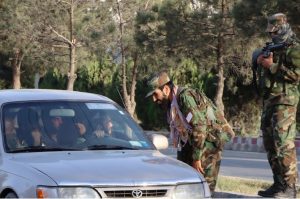 Earlier, the United States warned of a “specific, credible threat” near Kabul airport on Sunday as its forces rush to complete evacuations from Afghanistan by an August 31 deadline and the Taliban prepare to take charge of the key airfield.
Earlier, the United States warned of a “specific, credible threat” near Kabul airport on Sunday as its forces rush to complete evacuations from Afghanistan by an August 31 deadline and the Taliban prepare to take charge of the key airfield.
In a security alert, the US Embassy in Kabul warned of an attack in specific areas of Kabul airport, including its access gates, as US President Joe Biden told reporters in Washington, DC, his commanders informed him another “attack is highly likely in the next 24-36 hours”.
Scores of Afghan civilians and 13 US soldiers were killed on Thursday when a suicide bomber detonated his explosives at Kabul airport. The attack was claimed by the Islamic State in Khorasan Province, ISKP (ISIS-K).
A Western security official said US forces are in the final phase of their operations with about 1,000 civilians in the airport waiting to be evacuated.
Al Jazeera’s Charlotte Bellis, reporting from Kabul, said the threat of ISIL remains “very high”.
“We’re told that an ISIL attack is ‘highly likely’,” Bellis said.
 “I’ve heard that now from a number of people saying definitely do not go to the airport today,” she added.
“I’ve heard that now from a number of people saying definitely do not go to the airport today,” she added.
The Taliban is particularly concerned about the south entrance of the airport, which is the main entrance protected by the armed group, as well as the northwestern corner of the airport, Bellis said.
“The Taliban said they were incredibly worried about this ISIL threat. They had pushed people back, they had put barbed wire across the road to try and stop anybody getting close and trying to disperse the crowds.”
On the other hand, a large number of Afghan protestors took to the streets of Central London for the second week to condemn Afghanistan’s takeover by the Taliban forces and to express their disappointment at the behavior of the international community.
Various UK-based Afghan community groups and leaders organized the march. The march started from Marble Arch and the protestors walked towards the BBC Headquarters, 10 Downing Street, and the US Embassy.
The march was attended by a large number of protestors from all age groups carrying flags of  Afghanistan, demanding “free Afghanistan”, calling on the world to do more to restore peace in Afghanistan and help Afghans and condemning the regional and international powers for creating the current crisis in Afghanistan.
Afghanistan, demanding “free Afghanistan”, calling on the world to do more to restore peace in Afghanistan and help Afghans and condemning the regional and international powers for creating the current crisis in Afghanistan.
Outside the BBC central office near Oxford Circus, the protestors called on the BBC editorial management to “present the true picture of the Afghan nation” and “stop portraying Taliban and their bloodied rule in a positive light”.
The protestors said that the BBC’s coverage was biased and it failed to properly represent the real situation in Afghanistan and also ignored the two large-scale protests that took place in London within two weeks.
Almost everyone present in the protest said that they had relatives back home who were directly affected by the latest conflict and “the response of the international community was disappointing and insulting to the Afghan nation.”
The protestors criticized US President Joe Biden for suddenly withdrawing troops from Afghanistan and paving the way for the takeover by the Taliban forces. They said the North 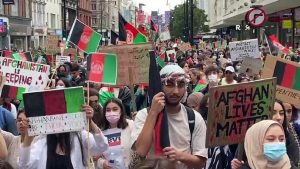 Atlantic Treaty Organization (NATO), the United Kingdom, and other countries simply “gave up on Afghanistan and left the Afghans at the mercy of the Taliban.”
Atlantic Treaty Organization (NATO), the United Kingdom, and other countries simply “gave up on Afghanistan and left the Afghans at the mercy of the Taliban.”
The protestors were carrying signs which read, “Free Afghanistan from The Taliban”; “20,000 is not enough, don’t abandon Afghans”; “Free Afghan children from the Taliban regime”; “Stop killing innocent Afghan civilians”; “My Watan deserves peace”; and “BBC speak up”.
Most of the demonstrators were waving Afghan flags, in defiance of the Taliban who have not used the national Afghan flag after taking over control of the country.
Protests in London and other European cities have started after the Taliban took over Kabul and Afghan President Ashraf Ghani left the country for the United Arab Emirates (UAE).
The protestors called on British Prime Minister Boris Johnson to accommodate more Afghan refugees and help evacuate Afghans who want to flee the country, refusing to live under the Taliban rule.
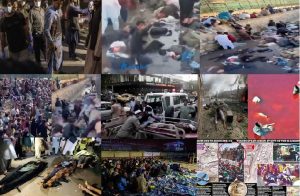 Last week, Mayor of London Sadiq Khan set out plans so London councils could buy homes to be used to resettle Afghan refugee families.
Last week, Mayor of London Sadiq Khan set out plans so London councils could buy homes to be used to resettle Afghan refugee families.
A spokesperson for Khan said: “London has a proud history of providing sanctuary to that in need and the Mayor has made clear that he wants to do everything in his power to support Afghan refugees to establish a long-term future in the city.
“That’s why he has today (Thursday, August 26) invited London councils to submit bids to his Right to Buy-back fund, which allows them to buy former council homes back from the private sector.
“In recognition of the emergency situation, the Mayor has signaled his intention to provide increased funding for family-sized homes purchased through the program.”
 Pressmediaofindia
Pressmediaofindia
